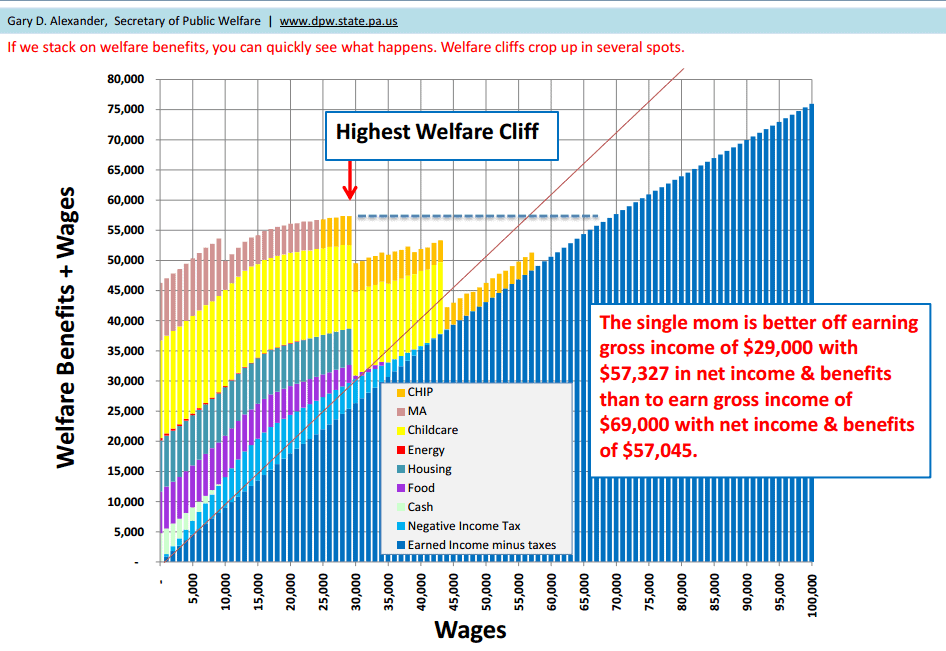


Government welfare programs can disincentivize Americans from lifting themselves out of poverty, a key finding in a new study published by the Cato Institute last month.
That’s also something Idaho Republicans should keep in mind as the hospital industry and minority Democrats increase pressure to expand government health care in the Gem State next year.
The new study, authored by Cato scholars Michael D. Tanner and Charles Hughes, reveals an uncomfortable truth for decision-makers: well-intentioned policies designed to help people might do more economic harm than good.
Tanner and Hughes studied welfare systems in European countries and this is what the duo found: “If welfare benefits become too generous, they can create a significant incentive that encourages recipients to remain ‘on the dole’ rather than to seek employment.”
In other words, redistribution of wealth serves as a handout and no longer a hand up.
During their research, the two scholars discovered a huge problem in several European countries: government benefits, including food, housing and phone assistance, paid out more than minimum wage.
That, they said, creates a new incentive for some. “Poor people are not lazy. But they are also not stupid,” they wrote. “Like everyone else, they respond to the incentives they face. If work brings little or no gain, many will choose not to work.”
While the Cato publication focused on Europe, that’s not an uncommon issue in the United States. Tanner and Hughes revealed welfare pays more than work in 35 states. In 13 of those states, welfare recipients could take in the equivalent of more about $15 an hour.
Idaho was not among the 35 due to very modest welfare payments compared to the rest of the country.
Still, the Cato researchers and others noted one huge problem with providing too much government assistance. Participants, as they get onto their feet, can face a “welfare cliff,” a scenario in which they exceed income limits for some means-tested programs and lose benefits. They then face higher taxes, fees and other costs, which results in the workers actually taking in less than they would have had they worked less -- or not at all -- and stayed on government assistance.
A single mom in Pennsylvania, for example, can bring home more in total wages and government benefits earning $29,000 a year than she can by earning $69,000 annually.
Here’s more on the welfare cliff.
The Foundation for Government Accountability, a Florida-based health care think tank, revealed earlier this year more than 15,000 Idaho residents could leave the workforce if state lawmakers expand government health care. Read that report here.
Tanner and Hughes offer an observation on how well-intentioned policies actually harm:
That disincentive is unfortunate for taxpayers who must foot the bill for such programs, but even more so for the recipients themselves. By making a rational short-term choice, recipients who forgo work for welfare may trap themselves and their families in longterm dependence.
While many European countries require beneficiaries to look for work and meet other requirements, the duo suggested policy-makers need to address excessively high benefits to roll back the welfare state.
Idaho lawmakers have the opportunity to stop this problem before it starts. But will they?

